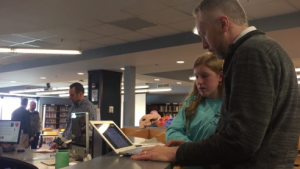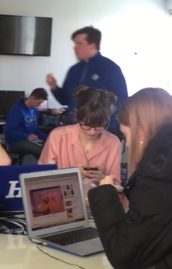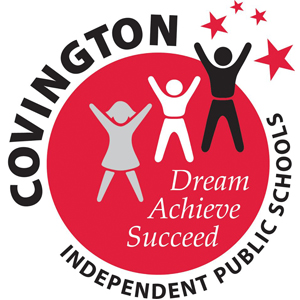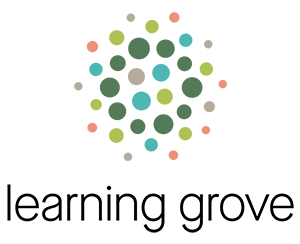By Zak Ober
Living Media/Fort Thomas Schools
As the recent Kentucky Department of Education findings show, students in the Fort Thomas Independent Schools top state rankings in many areas, but how do they compare with their peers across the United States and internationally?
To find out, a group of 15-year-old students from Highlands High School took an international assessment test provided by the Organization for Economic Co-operation and Development (OECD). The OECD Test for Schools measures quality, equity and efficacy of school systems. It also measures students’ knowledge and competencies in reading, math, and science. The OECD Test for Schools further assesses students’ attitudes towards learning and school and the learning environments of the schools themselves. This assessment does not simply consider whether students can reproduce what they have learned, but how well they can extrapolate from what they know and apply their knowledge creatively in novel contexts.

Assistant Superintendent for Teaching and Learning, Bill Bradford, shared results at the September school board meeting. He presented findings of the most recent OECD assessment taken by students in January 2018.
Overall, he said, Fort Thomas students were above the national mean performance scores in the U.S. In reading, the students received a mean score of 525 compared to the U.S. mean score of 497. In math, the gap was even higher, with the students earning a score of 546 compared to the U.S. mean score of 470. Fort Thomas students also did better in science with a score of 519 over a U.S. mean score of 496.
Yet, when digging deeper into the data, Bradford identified areas that pose as challenges and opportunities for improvement.
Competing globally
When comparing Fort Thomas students to their cohorts in other countries and economies, they did well, scoring above the UK, Russia, Brazil, China, Germany, France, Ireland, Korea, Australia, the Netherlands, and Japan in reading.
In math and science, the field was more competitive for the students, but they performed better than those in the UK, Netherlands, Germany, Russia, and Brazil.
Countries and economies with consistently higher scores than the Fort Thomas students were Singapore and Hong Kong, while Canada, Japan and Finland bested the students in science and math.
A closer look at reading scores
The OECD Test for Schools also provided profiles for the type of readers who took the test.
“The students were assessed on their reading habits, as well, which led to an identification of our students’ reader profiles,” said Bradford. “So, a look at our data allows for a comparison of reader profiles at our school and in the United States. Three percent of readers at our school are surface and wide readers, whereas across the U.S. it is seven percent. Deep and highly restricted readers at our school yielded 73 percent of students, while, overall in the U.S., the average is 37 percent. his may be an area where we can delve into deeper for the purpose of promoting a deeper understanding of the most effective learning strategies and to encourage our students to read a wide variety of materials for enjoyment.”
“The goal is to be a deep and wide reader,” added Superintendent Karen Cheser. “There is a correlation between highly performing countries and what levels of reading they do. Deep and wide reading is the aspiration. We want students to have a wide variety of things they read but also to read deeply.”
Challenges in confidence with material
While Fort Thomas students did very well in all areas, when it came to what is known as “instrumental motivation” in math and science, they did not do as well as the national average. This set of questions about math and science are designed to identify how students feel about the importance of these subjects to their future career or education goals.

For example, students were asked whether they agree with the statement, “Making an effort in mathematics is worth it because it will help me in the work I want to do later.” The percentage of Fort Thomas students who agreed with the statement was about 64 percent, while the average for the U.S., overall, was 81 percent in agreement. Similar gaps exist for questions about science.
The assessment also provided data that compared different proficiency levels in the two subjects in relation to how confident the students felt in applying what they have learned to everyday tasks. For example, students whose proficiency levels were below average, average and at the high level, were all asked if they felt confident in calculating gas mileage, using a train timetable, and how new evidence might change their understanding of life on Mars.
In each case, highly proficient students showed confidence but there was a significant gap between these students and those whose proficiency levels in these content areas were average or below average.
“One of the things we’ve talked about is does every student get the same core curriculum? Are there students who are not being exposed to these more relevant types of applications?” asked Cheser.
Bradford agreed it is an area for further exploration. “In thinking about project-based learning, could we try to initiate more opportunities to expose students more regularly to these types of challenging, yet real-life, learning experiences? It may offer a chance for us to pull in those experiences they might not get otherwise.”
A look at the learning climate

The OECD Test for Schools included questions on the learning environment in schools. Students were asked how satisfied they were with student-teacher interactions. Fort Thomas students rated their teachers and classroom experiences very high compared with other schools in the U.S.
This was especially evident in the area of teacher responsiveness and support, as students responded that they strongly agreed with positive statements such as, “If I need extra help, I will receive it from my teachers”, and “Most of my teachers treat me fairly.”
Bradford said this is a validation of the great work, dedication, and high quality of Fort Thomas teachers.
“We hear over and over again that our teachers will do anything to help students, that they are accessible and that they focus on the positive first. We hear that from parents and we hear that from students. We call that our ‘secret sauce’,” said Cheser.
“The great news is we are performing better than many countries. We continue to talk about our students being globally competitive. We’re not just about how well we do in at the state. We have better teachers, better students, and our scores are higher; yet, how do we compare both nationally and internationally, because that is our students’ proving ground?” she said.



















